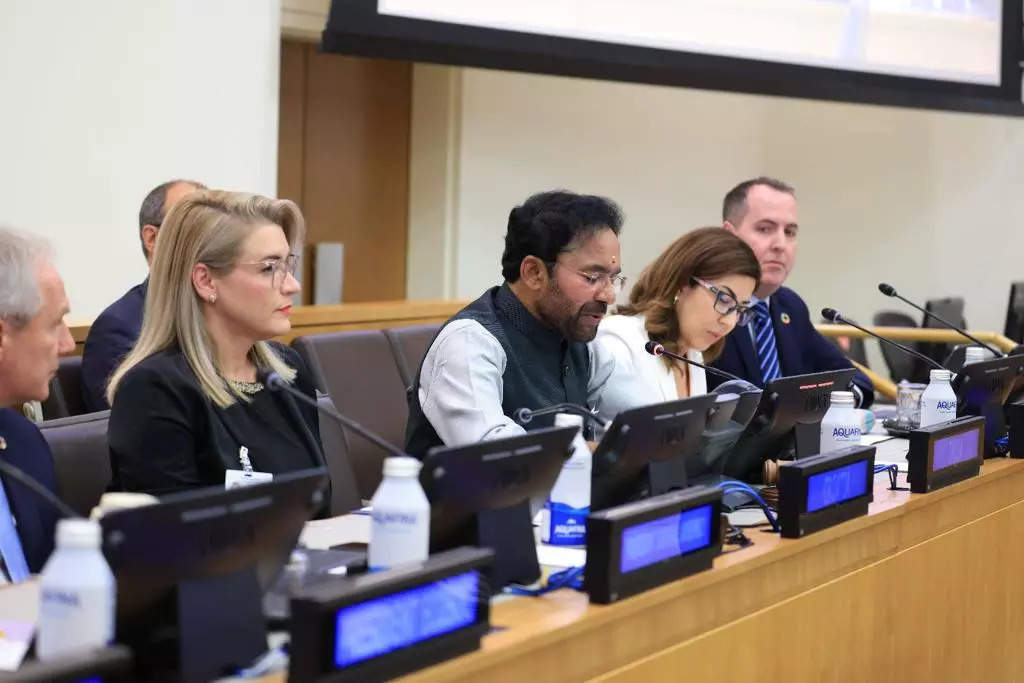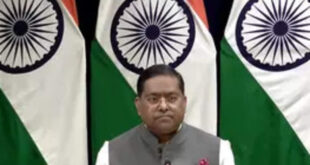[ad_1]

In a momentous occasion for India, the current chair of G20 Presidency, the country’s Union Minister of Tourism, Culture and DoNER, Govt of India, G Kishan Reddy, represented India at the UN High-Level Forum Roundtable. The Minister, who recently concluded chairing the G20 Tourism Working Group meeting in Goa, highlighted the country’s efforts in driving positive change and spearheading sustainable tourism practices.
“Showing an unwavering commitment, India is actively advancing towards achieving Sustainable Development Goals in the tourism sector,” Reddy stressed during his speech.
Speaking amongst the other ministers, Reddy emphasised the key elements of the recently developed Goa Roadmap, shedding light on how India is advancing SDGs, keeping the roadmap as the centrepiece of the country’s sustainable tourism efforts.
Terming it as a ‘pioneering global effort’, Reddy said that it provides guidelines outlining priorities, opportunities, associated objectives, and key recommended actions.
“The Goa Roadmap offers a transitional shift from the supply to the demand side and promotes responsible consumption by sensitising consumers,” Minister explained.
“A notable feature of the G20 Indian presidency 2023 Goa Roadmap for Tourism is its commitment to promoting collaboration and engagement to leverage activities to position the tourism sector as a leader in collective progress towards the SDGs,” he said.
Under India’s G20 presidency, key priority areas were identified, serving as vital building blocks for the transformation of the tourism sector and achieving the targets set for the SDGs by 2030. Reddy presented these five priority areas, starting with “Green Tourism,” which focuses on sustainable infrastructure, emission reduction, local community involvement, and innovation in line with the “Travel for Life” program, which will serve as an action guide for tourists and tourism businesses to promote responsible actions and demands.
Speaking further about India’s focus on digitalisation, Reddy expressed, “The tourism sector in India aims to enhance the visitor journey through a single app, while developing policies and regulations for privacy and data protection.”
The Minister then emphasised the importance of skills development, stating, “India is dedicated to upskilling, reskilling, and providing forward-thinking skills, training opportunities in the tourism industry, particularly for youth and women.”
Speaking about the participation of women in community-based tourism, he added, “India focuses on the social and economic development of women, particularly in rural areas, by providing training to manage homestays and other tourist amenities. This not only empowers women but also preserves the intangible heritage of communities and offers tourists an authentic experience.”
The role of micro, small, and medium-sized enterprises (MSMEs) in the tourism sector was also endorsed by the Minister where he said that India places special emphasis on uplifting MSMEs through training and financial support.
Besides, he also emphasised the importance of destination management, stating, “India is rethinking the strategic management of destinations to deliver on the SDGs. This approach involves engaging all stakeholders and ensuring destinations are sustainable, resilient, and inclusive.”
India has implemented several initiatives to advance sustainable development goals through tourism. The Ministry of Tourism launched a national strategy for sustainable tourism encompassing seven key pillars, including environmental sustainability, economic sustainability, biodiversity protection, social and cultural sustainability, certification of sustainable tourism, awareness campaigns, and capacity building through skill development and entrepreneurship training, shared Reddy.
To enhance connectivity to important tourist destinations, India is also collaborating with the Ministry of Aviation and other key ministries, following a whole-of-government approach. This collaboration has resulted in the operationalisation of tourism routes, facilitating easier access to iconic states and boosting tourism in those regions, he further explained.
Furthermore, India is leveraging technology to empower the hospitality and tourism industry. The National Integrated Database of the hospitality industry initiative serves as a gateway, enabling industry players to connect with the government, share best practices, and access various services, ultimately contributing to ease of doing business.
“By prioritising sustainable practices, infrastructure development, enhanced connectivity, green transport, and digitalisation, India is creating a conducive environment for the tourism sector to contribute to economic growth, environmental protection, and social well-being in a sustainable manner,” he concluded, reiterating that India aims to lead the way in advancing sustainable tourism goals.
[ad_2]
Source link






